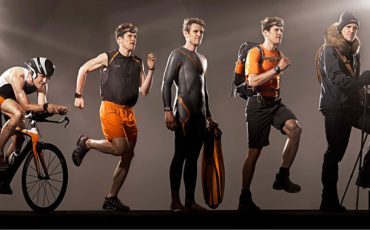Category: Sports Psychology
-

Conflict in Sports
In 1954, Muzafer Sherif, O. J. Harvey, B. Jack White, William R. Hood, and Carolyn W. Sherif undertook a project that allowed them to examine inter and intragroup relationships in a naturalistic setting. This classic field-based experimental study, known as the Robbers Cave Experiment because of its location (Robbers Cave State Park in Oklahoma), involved …
-

Competition in Sports
Competition is often described as a contest, or a process of contesting, between two or more parties (organisms, individuals, or groups) for a scarce resource or good. The scarcity can result from nature or history, such as competition for limited food, or it can be created artificially, such as the good of winning a game.…
-

Collective Efficacy
Albert Bandura defined collective efficacy (CE) as a group’s shared belief in its conjoint capabilities to organize and execute the courses of action required to produce given levels of attainments, that is, situation-specific confidence in a group’s ability. A commonly used definition of CE in sport and exercise is a group’s (e.g., a sport team…
-

What is Cohesion?
Cohesion represents the degree to which task and social bonds exist among group members, as well as the strength of individuals’ attractions to the task and social activities of the group. This entry briefly highlights the history, characteristics, conceptualization, measurement, and correlates of cohesion within sport and exercise environments. History Interest in and discussion surrounding…
-

Team Building
The fact that groups can influence outcomes important to both the individual and the group has been recognized for decades. One group variable that has been proposed to be important in this regard is the member’s perception of the group’s cohesiveness—staying with a group to achieve goals or for member satisfaction. Numerous studies have emerged …
-

Sports Psychology History
In many ways, the history of sport psychology mirrors the history of other longstanding disciplines, including psychology, physical education, and other kinesiology-related disciplines, and has been influenced by larger sociocultural trends for decades, for example, the growth of the Olympic movement, professionalization of sport, and women’s liberation. Progressing through a number of eras, sport psychology …
-

Career Transition
The term transition has been employed in various academic fields to explain a process of changes in a certain phenomenon, such as economic, political, biological, and psychological changes. The concept of transition in psychology is closely related to individuals’ period of change and lifespan development based on one’s aging (e.g., retirement), development (e.g., entering to …
-

Professional Training
Individuals preparing for a career in sport and exercise psychology (SEP) have traditionally followed one of two educational paths, training in kinesiology or training in psychology. In keeping with most international credentialing guidelines for certification or licensure of SEP professionals, both educational paths typically feature substantial coursework in the other discipline, reflecting the interdisciplinary nature …
-

Supervision in Sport
Supervision is a central component of professional training and development, providing opportunities for sport psychology (SP) practitioners at all levels to use the experiences and knowledge of others to examine themselves. Supervision is also required for certification or licensure (e.g., registration, chartering) in most of the psychology and helping professions (e.g., psychology, counseling, social work),…
-

Sport Psychiatry
Like sport psychology (SP), the field of sport psychiatry may involve utilization of psychological approaches to enhance athletic performance. However, a primary focus of sport psychiatry is diagnosis and treatment of mental illness in athletes. Sport psychiatry is a relatively new field, and as such, the research base is still developing. This entry reviews the…